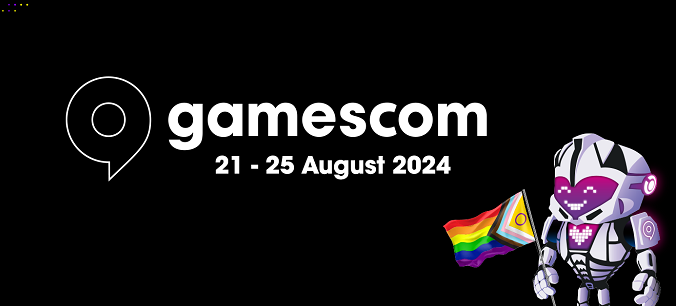The world’s largest video game trade show, Gamescom, opens its doors on Tuesday in Cologne, Germany, amidst a tumultuous period for the gaming industry, marked by significant layoffs and studio closures. Running until Sunday, the event is expected to attract over 300,000 attendees as companies showcase their highly anticipated upcoming releases, including “Indiana Jones and the Great Circle” and “Call of Duty: Black Ops 6.”
Industry Landscape and Revenue Insights
Despite projections indicating that the gaming industry will generate more than $180 billion in revenue this year and draw in over 3.4 billion players, the sector is grappling with a downturn that has seen sales fall short of the pandemic-era peaks. While large publishers tighten budgets and impose drastic cost-cutting measures, many smaller studios find themselves struggling to survive in this challenging environment.
French developer David Rabineau, head of independent studio Homo Ludens, expressed his concerns, stating, “I see studios that inspired me going out of business, and it terrifies me.” This sentiment resonates throughout the industry as creative minds fear for the future.
Rising Layoffs and Budget Cuts
The landscape is bleak, with at least 11,000 workers laid off this year—surpassing the total number for all of 2023, according to Game Industry Layoffs, a tracking site for employment changes. Bungie, the American firm known for “Halo” and “Destiny,” recently announced the elimination of 220 positions, representing 17 percent of its workforce. After being acquired by Sony in 2022, Bungie acknowledged that it had expanded too rapidly, attributing its downsizing to “a sharp downturn in the games industry.”
Publishers are not only reducing staff but also becoming increasingly selective in the projects they choose to fund. Rabineau noted, “They want to take less and less risk,” leading to a more conservative approach to game development.
Shifting Investment Trends
The decline in funding has created significant challenges for publishers. Stephane Rappeneau, a professor of video game economics at the Sorbonne in Paris, pointed out that investment firms that previously invested heavily during the pandemic boom are now shifting their focus to sectors like artificial intelligence. This has resulted in publishers passing on financing difficulties to studios, further complicating the landscape for game developers.
The Challenge of Ageing Consoles
Analyst Mat Piscatella from Circana highlighted the current tumultuous state of the industry. He noted that the three major consoles—Nintendo’s Switch, PlayStation 5, and Xbox Series—are past their peak performance. Additionally, older games such as “Fortnite,” “Minecraft,” and “League of Legends” continue to dominate players’ time and money, overshadowing new releases.
Newzoo’s data reveals that games released before 2018 accounted for nearly 61 percent of total time spent playing on computers and consoles last year, excluding China and India. Piscatella remarked, “Breaking through for new video games has never been more difficult.”
Looking Ahead
Despite the current challenges, optimism remains within the industry. Piscatella hopes that upcoming releases, including the highly anticipated “Grand Theft Auto VI” and Nintendo’s unveiling of a Switch successor, will provide the necessary boost to revitalize the gaming landscape.
As Gamescom 2024 unfolds, the event serves as a crucial moment for the gaming industry to reassess, adapt, and innovate in the face of adversity. The excitement surrounding new game announcements and the potential for revitalization offers a glimmer of hope for an industry striving to emerge from its current difficulties.

Fahad is an entrepreneur and a marketing enthusiast who loves to write on trending topics. He loves travelling & playing tennis is what he does in his leisure time. He tweets @fahad164.
Email:- fahad164@gmail.com , fahad@themediaparadigm.com











